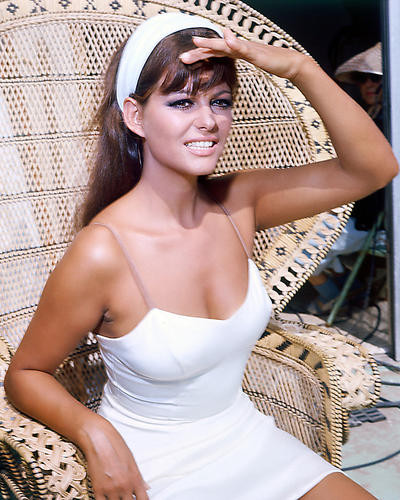Claudia Cardinale, born on April 15, 1938, in Tunis, Tunisia, to Sicilian parents, rose to prominence as one of the defining figures of European cinema in the 1960s and 1970s. With her striking beauty, distinctive husky voice, and effortless on-screen presence, she captivated audiences across the globe. Her journey into film was as unconventional as it was serendipitous—after winning a local beauty contest in Tunis, she was invited to the Venice Film Festival. That trip became the catalyst for a film career that would span decades.

At the time, Cardinale spoke only French and Arabic, yet her raw charisma quickly won over Italian directors, and she soon mastered the language of cinema—both literally and artistically. By the late 1950s, she was collaborating with renowned filmmakers such as Luchino Visconti and Federico Fellini, quickly establishing herself as a vital new voice in Italian film.

Her breakout moment arrived in 1963 with Fellini’s surreal masterpiece 8½, where she played a mysterious, idealized muse to Marcello Mastroianni’s introspective filmmaker. That same year, she starred in Visconti’s lavish period drama The Leopard, alongside Burt Lancaster and Alain Delon. The performance further cemented her status as a global star, showcasing her ability to bring both grace and emotional complexity to the screen.

Cardinale became synonymous with powerful, multidimensional female characters. In Sergio Leone’s Once Upon a Time in the West (1968), she redefined the western heroine, portraying a frontier widow with vulnerability and fierce determination. At a time when women were often relegated to supporting roles, Cardinale carved out space for strength, sensuality, and self-possession.

Off-screen, she was equally formidable. Cardinale was vocal in her resistance to being typecast as a mere sex symbol and consistently fought for the integrity of her roles. An advocate for women’s rights and social justice, she used her fame as a platform to champion causes she believed in. Fluent in multiple languages and never hesitant to speak her mind, she remained a cultural force far beyond the silver screen.

Claudia Cardinale’s career has been one of longevity, versatility, and unwavering authenticity. She is celebrated not just for her timeless beauty, but for her intellect, her independence, and her profound contributions to the art of film. Even today, she stands as a luminous example of what it means to be both an icon and an individual in the ever-evolving world of cinema.